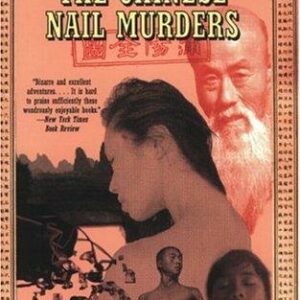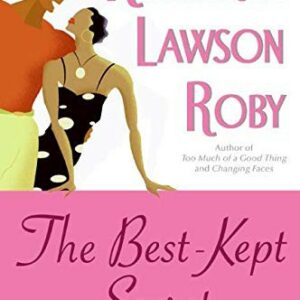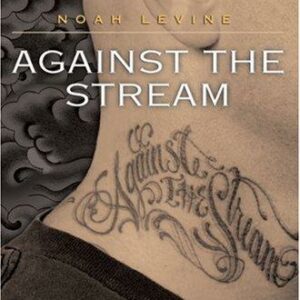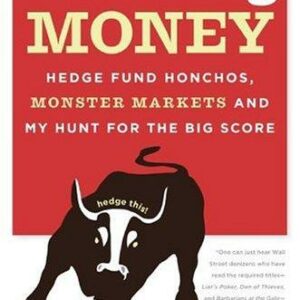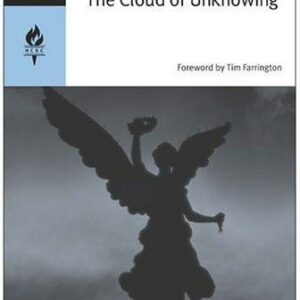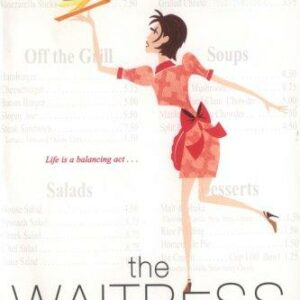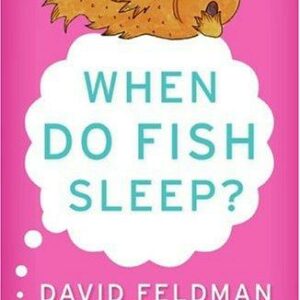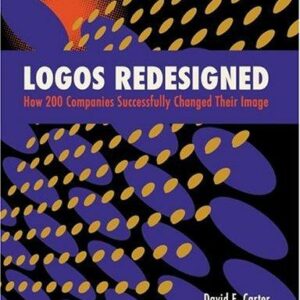The Prince of Providence
$18.00
| Title | Range | Discount |
|---|---|---|
| Trade Discount | 5 + | 25% |
- Description
- Additional information
Description
COP: “Buddy, I think this is a whorehouse.”
BUDDY CIANCI: “Now I know why they made you a detective.”
Welcome to Providence, Rhode Island, where corruption is entertainment and Mayor Buddy Cianci presided over the longest-running lounge act in American politics. In The Prince of Providence, Pulitzer Prize–winning journalist Mike Stanton tells a classic story of wiseguys, feds, and politicians on a carousel of crime and redemption.
Buddy Cianci was part urban visionary, part Tony Soprano—a flawed political genius in the mold of Huey Long and James Michael Curley. His lust for power cost him his marriage, his family, and close friendships. Yet he also revitalized the city of Providence, where ethnic factions jostle with old-moneyed New Englanders and black-clad artists from the Rhode Island School of Design rub shoulders with scam artists from City Hall.
For nearly a quarter of a century, Cianci dominated this uneasy melting pot. During his first administration, twenty-two political insiders were convicted of corruption. In 1984, Cianci resigned after pleading guilty to felony assault, for torturing a man he suspected of sleeping with his estranged wife. In 1990, in a remarkable comeback, Cianci was elected mayor once again; he went on to win national acclaim for transforming a dying industrial city into a trendy arts and tourism mecca.
But in 2001, a federal corruption probe dubbed Operation Plunder Dome threatened to bring the curtain down on Cianci once and for all.
Mike Stanton takes readers on a remarkable journey through the underside of city life, into the bizarre world of the mayor and his supporting cast, including:
• “Buckles” Melise, the city official in charge of vermin control, who bought Providence twice as much rat poison as the city of Cleveland, which was at the time four times as large, and wound up increasing Providence’s rat population. During a garbage strike, Buckles sledgehammered one city employee and stuck his thumb in another’s eye. Cianci would later describe this as “great public policy.”
• Anthony “the Saint” St. Laurent, a major Rhode Island bookmaker and loan shark, who tried to avoid prison by citing his medical need for forty bowel irrigations a day, thus earning himself the nickname “Public Enema Number One.”
• Dennis Aiken, a celebrated FBI agent and public corruption expert, who asked to be sent to “the Louisiana of the North,” where he enlisted an undercover businessman to expose the corrupt secrets of Cianci’s City Hall.
The Prince of Providence is a colorful and engrossing account of one of the most tragicomic figures in modern American life—and the city he transformed.Advance praise for The Prince of Providence
“The Prince of Providence reminds me of Orson Welles’s great line from The Third Man: ‘In Italy for thirty years under the Borgias they had warfare, terror, murder, bloodshed—they produced Michelangelo, Leonardo da Vinci, and the Renaissance. In Switzerland they had brotherly love, five hundred years of democracy and peace, and what did they produce? The cuckoo clock.’ Mike Stanton’s portrait of Mayor Vincent ‘Buddy’ Cianci places Cianci among the Borgias, a late-twentieth-century prince who championed the arts, dark and bright both, to resurrect a great American city.”
—Chris Matthews
“Mike Stanton is our preeminent aficionado and raconteur of Rhode Island’s flamboyantly criminal political follies, and The Prince of Providence is the chronicle of a great American rogue, Mayor Buddy Cianci—a paragon of charisma and corruption.”
—Philip Gourevitch, author of A Cold Case
“Rollicking, frolicking, and superbly reported. Politics has never been this bizarre, this corrupt, or, for that matter, this much fun. Sit back and hold on tight, because The Prince of Providence is one helluva rollercoaster ride.”
—Buzz Bissinger, author of A Prayer for the City and Friday Night Lights
“The Prince of Providence is a gritty, textured account of urban corruption and urban renewal, and a vivid portrait of a charismatic scoundrel and true American original—Rhode Island’s Huey Long.”
—John Taylor, author of The Count and the Confession
“A blistering and memorable portrait of a man and a city . . . the kind of successfully fluid story that could be written only by someone who has seen and connected the dots.”
—Kirkus Reviews (starred review)Mike Stanton heads the investigative reporting team at The Providence Journal, Rhode Island’s leading newspaper. He has broken stories about mobsters, a crooked governor and a crooked Supreme Court justice, wayward cops and prosecutors, and sleazy bankers and developers. Stanton has also written for The Washington Post, the Columbia Journalism Review, and The Boston Globe. He shared the 1994 Pulitzer Prize for investigative reporting, exposing widespread corruption at the Rhode Island Supreme Court. In 1997, he received the Master Reporter Award, for career achievement, from the New England Society of Newspaper Editors. He has also won prizes from Investigative Reporters and Editors, the American Society of Newspaper Editors, and the Associated Press. He is a graduate of Syracuse University and Northwestern University’s Medill School of Journalism. Stanton lives in Rhode Island with his wife, Susan Hodgin, and their two children.CHAPTER ONE
The Prosecutor, the Priest, and the Mob Boss
Buddy Cianci sat in the wooden pew of the courtroom, doubting a priest.Courtroom No. 5 in the Providence County Courthouse was crowded on this spring morning in 1972, like Easter mass at St. Bartholomew’s in Silver Lake, where Cianci gone as a boy. Cianci, a thirty-one-year-old Rhode Island prosecutor, sat shoulder to shoulder with Bobby Stevenson, a beefy Irish detective who had played CYO ball for St. Michael’s in South Providence.The two men watched as a ruddy, white-haired priest made his way to the front of the room, past a larger-than-normal contingent of armed sheriffs and curious spectators. He walked past a tableful of exhibits—an army carbine, two sawed-off shotguns, pistols, revolvers, and Halloween masks of John F. Kennedy and Richard M. Nixon. The priest paused to embrace the man at the defense table, Mafia boss Raymond L. S. Patriarca.Then Father Raymond Moriarty took the witness stand, raised his right hand, and swore to tell the truth.Patriarca, the feared ruler of the New England rackets, the man known in the underworld as “the Mayor of Providence,” was on trial for murder. Moriarty, his childhood friend, who had entered the priesthood around the time that Patriarca was arrested for rolling dice on a Sunday, had come from his parish in Maryland to testify as the Mafia chief’s alibi.Four years earlier, on the Saturday after Easter, two masked gunmen had burst into a meat market in Silver Lake and gunned down a bookmaker and his bodyguard as they did their weekly grocery shopping. Rudolph Marfeo, the bookie, fell near the front door, a drawn .38 in his hand, his left side blown apart. Anthony Melei, the bodyguard, died next to the ice cream freezer, his face shot away by Double OO buckshot. The shopkeeper and his wife dived behind the deli counter as the killers retreated. Their getaway car roared up a steep hill beside the market, through the streets of Buddy Cianci’s childhood, and sped across Laurel Hill Avenue, a few blocks north of his house. Soon, curious neighborhood boys pressed their face to the plate-glass window to see the bloody corpses as the wail of sirens signaled yet another mob hit in Providence.The government’s star witness, Boston armored-car robber Red Kelley, had testified that he planned the murders for Patriarca. He described a meeting outside a Providence restaurant two weeks before the murders, on Palm Sunday, when Patriarca snarled, “I want him dead,” meaning Marfeo. The hit had been planned for the day before Easter. But it was postponed after the son of one of the gunmen found a pistol stashed in a toy chest and accidentally shot and killed his playmate on Good Friday afternoon.Father Moriarty contradicted Red Kelley’s story.Speaking in a soft, confessional voice, the priest told the jury that he had been with Patriarca that Palm Sunday. He had gone with the mob boss to the Gate of Heaven Cemetery in East Providence, where the two men had prayed over the grave of Patriarca’s wife. Afterward, they had returned to Patriarca’s house on the East Side of Providence, and Father Moriarty had spent the night.Patriarca wept during Father Moriarty’s testimony and hugged him again when he stepped off the witness stand.In the back of the courtroom, Cianci turned to Stevenson and shook his head. The priests Cianci had known as a boy at St. Bart’s had listened to his confessions and taught him the Ten Commandments: Thou shalt not steal. Thou shalt not kill. Thou shalt not bear false witness. . . . This priest’s story sounded too good to be true, Cianci said. Stevenson wondered aloud what kind of a priest would be away from his parish on Palm Sunday.Cianci and Stevenson feared that Father Moriarty had destroyed the state’s case in heavily Catholic Rhode Island, and that Patriarca would soon be free to resume running the rackets. During a recess, Cianci went downstairs to the Rhode Island attorney general’s office and spoke to his bosses about his doubts.“This doesn’t sound right,” Cianci told them.Cianci, who had been assisting the lead prosecutor in the trial, offered to check out the priest’s alibi. His superiors agreed. But there wasn’t much time. Closing arguments were scheduled for the next day. Then the case would go to the jury.n Long before Providence was Buddy Cianci’s town, it belonged to Raymond Loreda Salvatore Patriarca.Patriarca was the last of the old-time gangsters. He came of age during Prohibition, hijacking shipments of bootleg liquor, and over the next five decades became one of the richest and most powerful mob bosses in America.From the back room of his Coin-O-Matic vending office on Federal Hill, in the heart of Providence’s Little Italy, Patriarca ran a multimillion-dollar criminal empire built on illegal gambling, loan sharking, truck hijackings, and labor racketeering. An illegal FBI bug ordered by J. Edgar Hoover in the early 1960s picked up the constant squeak of Patriarca’s desk drawer as he dropped in envelopes that the wiseguys brought in tribute. They also gave him cigars, whiskey, a fur coat, a diamond ring, a gallon of spaghetti sauce—anything they could think of to keep those baleful eyes from looking on them with disfavor. One day a shoplifter stopped in to show Patriarca a London Fog raincoat that he had stolen from a downtown department store; Patriarca tried it on, found that it fit perfectly, and told the man, “Now go boost another one for yourself.”“No matter what went on in New England, Raymond got a piece of the action,” recalled Patriarca underboss Vinny Teresa.Patriarca bragged that he owned Connecticut, vowed to declare martial law to end an Irish-Italian gang war in Massachusetts, and arbitrated disputes among the Five Families in New York. He owned part of the Dunes Hotel and Casino in Las Vegas, had dealings with Jimmy Hoffa and Meyer Lansky, and was a silent partner in a Massachusetts horse track with Frank Sinatra and Dean Martin. Law enforcement lore had it that Sinatra got the engagement ring he gave Mia Farrow from Patriarca, who procured it from a wiseguy who had stolen it from Damon Runyon’s widow on Cape Cod. Patriarca had once entertained an offer from some wealthy Cuban businessmen to assassinate Fidel Castro, using the same hitman who had gunned down Rudy Marfeo and Anthony Melei. Facing the prospect of prison, Patriarca received an offer of asylum from his casino partner in Haiti, the notorious dictator “Papa Doc” Duvalier. Patriarca turned him down, confident that he could beat the rap.If someone got out of line, Patriarca would bite down hard on his cigar, his craggy face would turn white, and he’d spit out the command to “put him in the hospital,” or worse. When a Bible manufacturer reported that someone was stealing Bibles from a business that Patriarca had a piece of, the mob boss warned that if he was lying, “he would wind up in the hospital with his legs broken.”But Patriarca understood that running a successful business required more than muscle and the threat of violence. Corrupting government officials was also necessary. He owned judges, politicians, and cops, whom he paid to protect his illegal gambling operations. “If you have not got the law today,” he told an associate, “you can’t stay in the gaming business.” He advised his men to stay away from politicians, unless absolutely necessary—then “go see them with the money.”The FBI bug captured Patriarca discussing political endorsements like a ward boss. In 1964 he and an unidentified politician discussed who they were supporting in the mayor’s race. Another time, a man running for lieutenant governor stopped by Coin-O-Matic, seeking Patriarca’s backing, and received a lecture for being so careless as to visit in person. When Patriarca’s son had trouble changing a course at the University of Rhode Island, Patriarca called the governor to straighten things out.Patriarca’s rise coincided with Providence’s decline.Born on St. Patrick’s Day 1908 in Worcester, Massachusetts, Patriarca moved to Providence when he was about four years old. His father ran a liquor business on Federal Hill, a neighborhood west of downtown that teemed with Italian immigrants, among them a carpenter from Roccamonfina, Pietro Cianci, Buddy’s grandfather.The crowded tenements of Patriarca’s childhood were a place of ferment as the rural Italians struggled to adapt to an urban environment dominated by Yankee factory owners and Irish cops. Even the Catholic Church was run by Irish bishops and upper-caste Northern Italian priests, who tried to ban the southerners’ peasant superstitions and boisterous religious feast days. In 1920 a phalanx of Providence police officers held back one hundred Italian women trying to forcibly evict a priest from the Church of the Holy Ghost on Federal Hill. Said one early Italian leader, “We came here with high ideas, and were kicked around like dogs.” Their mistreatment fueled a suspicion of authority carried over from the old country, where the people had a saying: “If you want to be rich, become a thief, a policeman, or a priest.”In choosing his career path, Patriarca could have followed many of the immigrants into one of Providence’s booming factories. Thanks to immigrant labor, Providence was one of the richest cities in America in the early 1900s. It was the hub of the nation’s most industrialized state, an early-day Silicon Valley of cutting-edge technology. The city boasted its “Five Industrial Wonders of the World”—the largest precision-tool factory (Brown & Sharpe), the largest file factory (Nicholson File), the largest steam-engine factory (Corliss), the largest silverware factory (Gorham), and the largest screw factory (American Screw)—plus the country’s biggest textile manufacturer, Fruit of the Loom. Local factories turned out windlasses for U.S. Navy ships and the U.S. Army cannons that massacred the Sioux at Wounded Knee. Local innovators developed the first fire-sprinkler system for office buildings, a machine that made horseshoes, and a “burglarproof” safe.Most of that wealth remained locked in the vaults of the wealthy East Siders. Although the immigrants outnumbered them, the Yankee ruling class controlled the government through a corrupt political machine that bought rural Republican votes while denying the vote to landless urban dwellers. The system was run by Boss Brayton, the half-blind Republican party chief and Providence’s federal postmaster, who once secured a thirty-seven-thousand-dollar personal loan with postage stamps. Brayton’s machine produced the most powerful politician in America at the turn of the century, U.S. Senator Nelson Aldrich, a descendant of Roger Williams who began his career as a grocery clerk and started his political career on the Providence City Council. Dubbed “the General Manager of the United States,” Aldrich fought Teddy Roosevelt’s trust-busting efforts, permitted trust lobbyists to set up shop in his Senate office, and married off his daughter to John D. Rockefeller’s son in his opulent waterfront mansion on Narragansett Bay in Warwick—the house that sugar built. Curious about the political system that had produced Aldrich, the muckraker Lincoln Steffens visited Rhode Island for McClure’s magazine in 1904 and found it to be one of the most corrupt in the nation. Vote-buying was rampant; the going rate for a man’s vote was two to five dollars for an ordinary election and fifteen to thirty-five for a hotly contested race. “An honest voter,” said one Brayton lieutenant, “is one who stays bought.” The growing immigrant populace watched and waited.“What has the immigrant really learned in America?” asked one Italian activist. “Justice here encourages lawlessness and corrupts the sons of honest peasants.”A. J. Liebling, the New Yorker magazine writer who worked as a reporter for The Providence Journal-Bulletin during Prohibition, recalled a waterfront lined with flophouses, tattoo parlors, and Portuguese ship chandlers’ stores, where smugglers ran scotch right up Narragansett Bay. “The best liquor was to be had of a bootlegger who had a flat in a frame building behind the State House,” wrote Liebling. “He felt a responsibility for the quality of the legislation that got passed under its influence.”Patriarca dropped out of school after eighth grade. He shined shoes and worked as a bellhop at the new Biltmore Hotel, an opulent Jazz Age hotel that had a rooftop chicken coop to provide guests with fresh eggs for breakfast. Patriarca worked there for two years, opening doors for the powerful businessmen and politicians who would walk across the street from City Hall. Then, in 1925, when he was seventeen, his father died. Later Patriarca would say, “I lost my father, and I guess I drifted a little.”Prohibition, another curse visited upon the immigrant population by the Yankee temperance movement, provided savvy and ruthless young men like Patriarca a quick path to the riches that America had promised. Patriarca drifted first into rum-running, then double-crossed his associates and hijacked the liquor shipments he had been paid to guard. After Prohibition, Patriarca gambled, robbed payrolls, and trafficked in white slavery, as prostitution was known.In 1930, while a third of Providence’s workers were losing their jobs to the Great Depression, Patriarca organized an Easter Sunday prison break for two criminal cohorts from the Rhode Island state prison; it failed, after a shoot-out in which two guards died. In 1933, when seventy-seven thousand workers marched through downtown Providence in support of President Roosevelt’s National Recovery Act, the Providence police designated Patriarca a “public enemy,” meaning that he could be picked up on sight after dark. In 1938, Patriarca’s scandalous early parole by the governor of Massachusetts after a burglary conviction led to the impeachment of a state official who had been a contemporary of James Michael Curley.Patriarca ran with Butsey Morelli’s gang. Back in 1920, Morelli’s gunmen had pulled off the Braintree, Massachusetts, shoe-factory payroll heist that was later pinned on Sacco and Vanzetti, the famous martyrs to anti-Italian prejudice. A guard was killed in the holdup, and Sacco and Vanzetti, two Socialists, were railroaded and executed. As Butsey later confided to another Patriarca associate: “These two suckers took it on the chin for us. That shows you how much justice there really is.”After World War II, Morelli retired. Patriarca moved swiftly to seize control of the rackets, not only in Rhode Island but throughout New England. One of his first moves was to take over the underworld’s lucrative race wire. When Irish gangster Carleton O’Brien stood in his way, Patriarca’s goons wrecked O’Brien’s betting parlors and then shot O’Brien dead in his driveway. Next, Patriarca strong-armed his way to control of Rhode Island’s vending-machine business. As the proprietor of Coin-O-Matic on Federal Hill, Patriarca claimed that he had gone straight, even as various crime commissions concluded otherwise.In 1950, when Buddy Cianci was in grammar school, the Kefauver Committee in Washington crowned Patriarca king of the New England rackets. In 1955, when Cianci was a high school freshman, a Boston bank robber arrested by the police said that he owed Patriarca money: “I was told by a member of the Patriarca mob that I had until Thursday to get the money, or else. Patriarca is the mayor of Providence.” And in 1959, when Cianci was a college freshman, Patriarca jousted with Bobby Kennedy at a U.S. Senate rackets committee hearing about his wayward youth.“Why do a lot of young fellows do a lot of things,” Patriarca asked Kennedy, “when they haven’t a father?”Patriarca cultivated an image as the Robin Hood of Federal Hill, handing out boxes of candy bars to respectful children at Halloween and quietly financing “Patriarca scholarships” so that poor youths could attend college. His neighbors said that he made the streets safe at night, and that he could quickly recover stolen cars and goods taken in house burglaries. When the hated Providence Journal kept writing about his mob exploits, Patriarca bought an ad in the newspaper quoting Shakespeare’s Julius Caesar: “The evil that men do lives after them. The good is often interred with their bones.” Yellowed clippings of his early criminal career disappeared from the newspaper’s morgue.Patriarca’s postwar Providence was a wide-open town that lived up to its colonial reputation as “Rogue’s Isle,” a city of hustlers, gamblers, and ward heelers with a film-noir skyline that curled like a fist around the head of Narragansett Bay. The great ships that had once circled the globe no longer visited the rotting piers that jutted out into the bay like a prizefighter’s broken teeth. As the factories moved south and the families of returning soldiers moved to the suburbs, Patriarca reigned over a world of floating crap games, bookie parlors, and brassy nightclubs. Housewives in Silver Lake put down a dime or a nickel to play the “nigger pool,” a numbers game that originated in Harlem. Judges and lawyers bought their suits from Alfredo “the Blind Pig” Rossi, a major Patriarca fence. Rossi trafficked in stolen merchandise that teams of Patriarca’s boosters stole from fancy department stores around the country, shipping their catch back home like fishermen of old.People crowded into the Celebrity Club in Randall Square to see Duke Ellington and the Rhode Island Auditorium on North Main Street to watch boxer Rocky Marciano chase the world heavyweight title. Afterward, fight fans adjourned to Manny Almeida’s Ringside Lounge, a downtown bar run by Marciano’s manager, an intimate of Patriarca’s. Marciano knew who held the power in Providence. When someone stole a fur coat from his car, he went to Patriarca, not the police, to try and get it back.Another boxing fan, Colonel Walter Stone, was an honest cop who tried to fight Patriarca, first as Providence’s police chief and then as superintendent of the Rhode Island State Police. One night he leaped into the ring at the Arcadia Ballroom downtown to break up a melee that had begun when the brother of the losing boxer attacked the winner; flinging bodies aside, Stone quickly restored order. A governor who was in Patriarca’s pocket, John Notte, fired Stone in the early 1960s, but outraged voters threw Notte out the next election and the new governor, John Chafee, reappointed Stone. In the fall of 1963, when the U.S. Senate’s McClellan Committee held the explosive Valachi hearings, in which mob turncoat Joseph Valachi revealed the inner workings of the Mafia, Stone also testified regarding Patriarca, whom Valachi had identified as a member of the Mafia’s national ruling commission.Patriarca was “a shrewd, scheming individual,” said Stone, “as well versed in the ways of crime today as he was in yesteryear.” He was hard to nail, because he insulated himself and intimidated potential witnesses. Eddie Hannan, an ex-boxer who thought about testifying against a Patriarca hit man he had seen shoot Tiger Balletto in the Bella Napoli Café, was strangled to death with baling wire, his body left in the Federal Hill dump. There was a saying on the Hill: “Better to be judged by twelve than carried by six.”“Certainly if we had the cooperation of the citizen, we could cope with the situation, but when you don’t have it, certainly you can’t,” Stone testified. “Law enforcement on a state and local level I would say is not in any position to compete with them.”But by the late 1960s, a growing number of citizens felt that things had gotten out of control. They were tired of reading about gangland slayings and shootings in broad daylight. One afternoon, bullets smashed through the window of Angelo’s restaurant on the Hill, narrowly missing a waitress and sending diners diving to the floor. The streets of Providence, said Stone, had turned into “a jungle.”The police became jaded by the violence. They found Baby Curcio one winter’s night, slumped behind the wheel of his car in his pajamas in the city’s North End, six bullet holes in his head and neck. A junkie, Baby had made the mistake of burglarizing the house of Patriarca’s brother. It was so cold that his blood wouldn’t run, so the coroner allowed the police to tow the car to headquarters, with Baby’s corpse still behind the wheel. On the way, the two detectives stopped off at the Everready Diner on Admiral Street for a cup of coffee. Thawing out inside, the detectives sent the counter boy to see if the guy in the car wanted anything. The boy came rushing back inside, chalk white, lips shivering, as if he’d just seen a ghost.In 1966 Rhode Islanders elected Herbert DeSimone, a Republican long shot, as attorney general. He upset a four-term Democrat who had denied the existence of the Mafia in Rhode Island. The Ivy League–educated DeSimone, who had been a football star at Brown University, wanted to be governor. He saw political advantages in going after Patriarca. A gangbuster image would help him overcome anti-Italian prejudice among suburban voters.One of DeSimone’s campaign volunteers was a recent law-school graduate with his own political ambitions, Buddy Cianci.US
Additional information
| Weight | 14.4 oz |
|---|---|
| Dimensions | 1.0500 × 5.2000 × 8.0000 in |
| Imprint | |
| Format | |
| ISBN-13 | |
| ISBN-10 | |
| Author | |
| Audience | |
| BISAC | |
| Subjects | biography autobiography, POL064000, corruption, Rhode Island, narrative nonfiction, American politics, nonfiction books, non fiction books, POL016000, bios, providence, auto biography biography, autobiography biography, political biography, political process, Mayor Buddy Cianci, city politics, political misconduct, nonfiction, inspirational, politics, crime, inspiration, biography, advice, biographical, motivational, history, true story, political science, Political corruption, non fiction, true stories, biographies, motivational books, memories |


